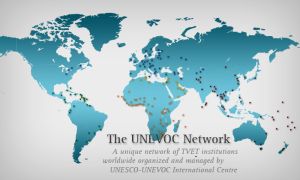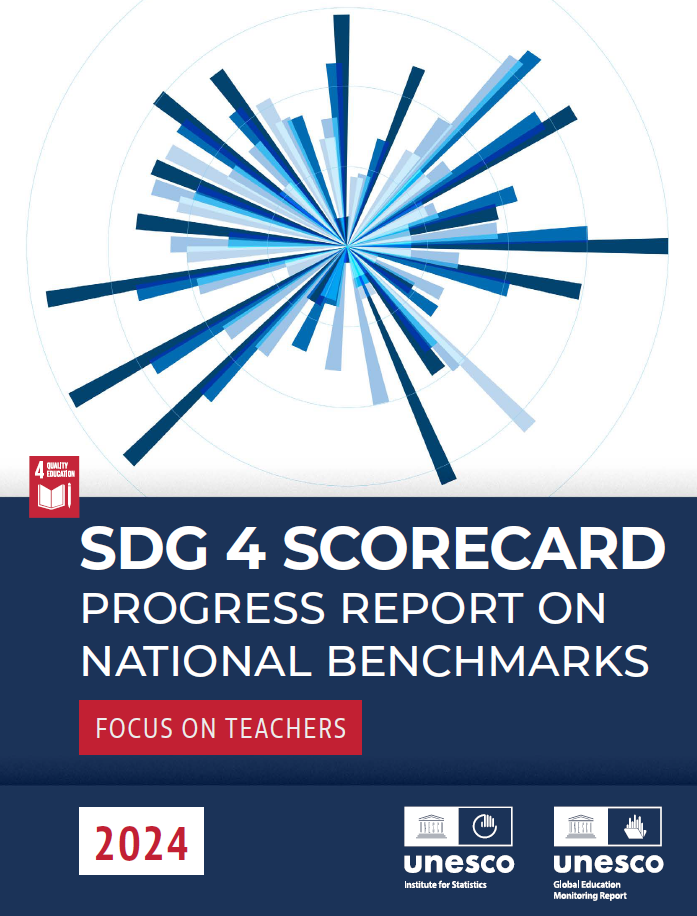-
About Us

The UNESCO-UNEVOC International Centre
-
Our Network

The UNEVOC Network
For Members
- Skills for Work and Life
- Knowledge Resources
The UNESCO-UNEVOC International Centre: Who We Are | What We Do | Working With Us | Get in Touch
The UNEVOC Network: Learn About the Network | UNEVOC Network Directory
For Members: UNEVOC Centre Dashboard
Thematic Areas: Inclusion and Youth | Digital Transformation | Private Sector Engagement | SDGs and Greening TVET
Our Key Programmes & Projects: BILT: Bridging Innovation and Learning in TVET | Building TVET resilience | TVET Leadership Programme | WYSD: World Youth Skills Day
Past Activities: COVID-19 response | i-hubs project | TVET Global Forums | Virtual Conferences | YEM Knowledge Portal
Our Services & Resources: Publications | TVET Forum | TVET Country Profiles | TVETipedia Glossary | Innovative and Promising Practices | Toolkits for TVET Providers | Entrepreneurial Learning Guide
Events: Major TVET Events | UNEVOC Network News

| Author/s: | UNESCO Institute for Statistics, Global Education Monitoring Report Team |
| Publisher/s: | UNESCO |
| Published: | 2024 |
| Licence: | CC BY-SA |
Setting SDG 4 benchmarks is a novel process. It has involved countries specifying their contribution to the achievement of the global targets based on their national plans and policies. Overall, 79% of countries have submitted benchmarks, or national targets, to be achieved by 2025 and 2030 for at least one of eight SDG 4 indicators. This process, supported by the UIS and the GEM Report, responds to the Education 2030 Framework for Action which had called on countries to establish ‘appropriate intermediate benchmarks…for addressing the accountability deficit associated with longer-term targets’.
Three key messages come out of this report. First, more communication is needed in order to address issues related to indicator definitions, data sources, data gaps and sector plan targets. Second, a systematic mechanism needs to be introduced to the process for countries to seek clarifications and provide feedback. Third, more work is needed to explain what policies are linked to slow or fast progress towards the achievement of national benchmarks. These messages will be the focus of a dedicated session during the UNESCO Conference on Education Data and Statistics taking place in Paris in February 2024.